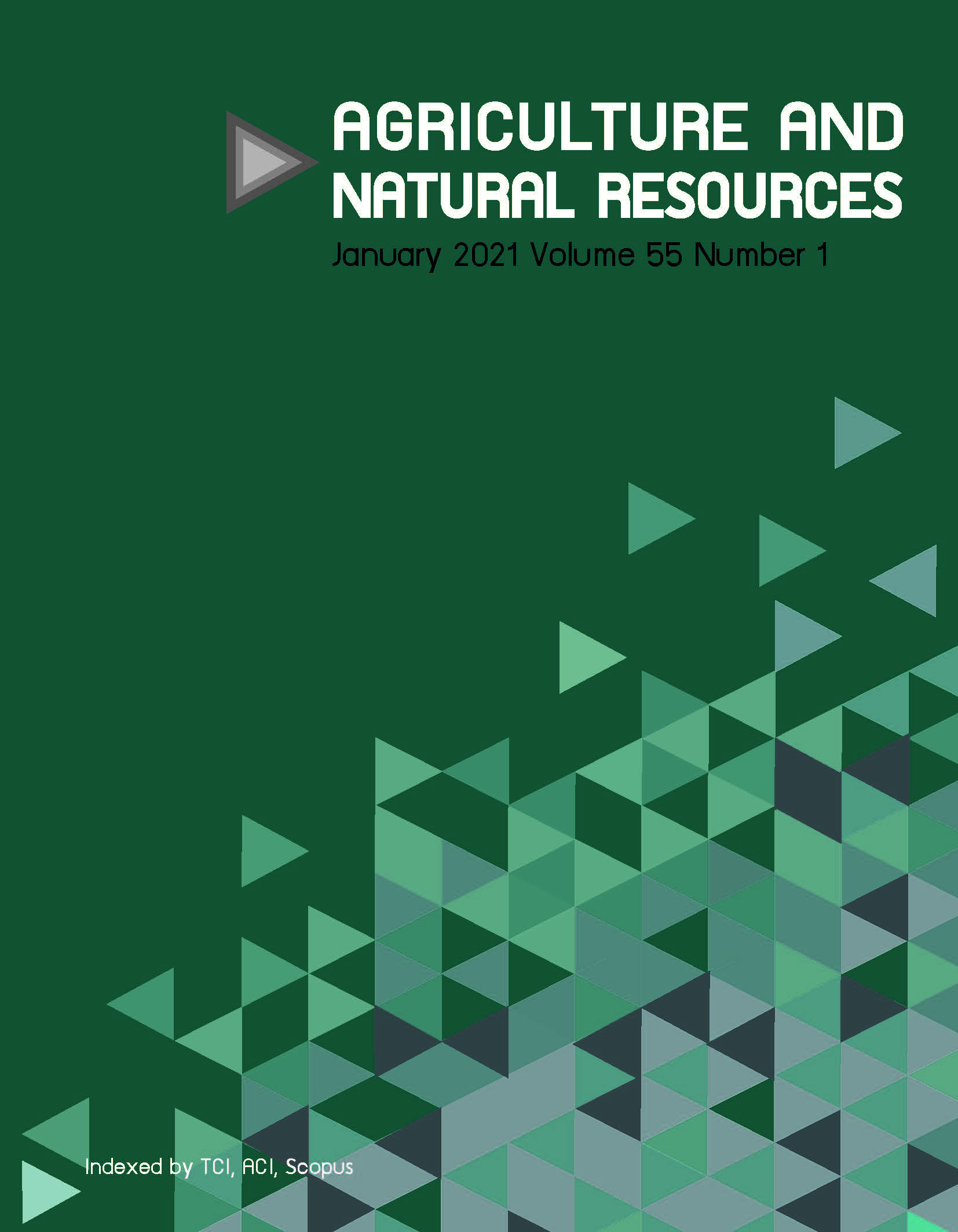Development of a new microbial toxicity test based on inhibition of alpha-amylase production and its sensitivity against metal contaminants
Keywords:
Alpha-amylase production inhibition, Heavy metal toxicity, Test procedure optimization,Abstract
Varying test parameters and procedures were tested and standardized for a new aquatic toxicity assay based on the inhibition of alpha-amylase production by Bacillus subtilis TISTR 1528. Suitable values were determined for the initial cell density and incubation period, as well as the culture medium to improve the new assay’s applicability for testing the toxicity of metal pollutants,. The sensitivity and repeatability of the test results were later determined using three reference heavy metals (Zn2+, Cu2+ and Cd2+). The optimum conditions for the test were a cell suspension with a density of 6×106 colony forming units/mL being exposed to a reference toxicant for 30 min, with an additional 1 hr incubation period for the amylase assay. Compared to the results from other microbial test systems, the newly developed alpha-amylase assay responded quite sensitively against the reference toxicants, with mean (± SD) half maximal inhibitory concentration values of 0.456 ± 0.037 mg Zn2+/L, 0.106 ± 0.010 mg Cu2+/L and 0.068 ± 0.006, mg Cd2+/L, respectively. These results indicated a high possibility to apply this new microbial test for assessing hazardous levels of natural water samples contaminated with heavy metals. In addition to their high sensitivity against the toxicity of various heavy metals, the alpha-amylase test with B. subtilis was also relatively simple to conduct, with minimum requirements for specialized devices. Thus, this newly developed microbial test system could be applied as an alternative screening tool for routine quality monitoring of natural water resources.
Downloads
Published
How to Cite
Issue
Section
License

This work is licensed under a Creative Commons Attribution-NonCommercial-NoDerivatives 4.0 International License.
online 2452-316X print 2468-1458/Copyright © 2022. This is an open access article under the CC BY-NC-ND license (http://creativecommons.org/licenses/by-nc-nd/4.0/),
production and hosting by Kasetsart University of Research and Development Institute on behalf of Kasetsart University.







